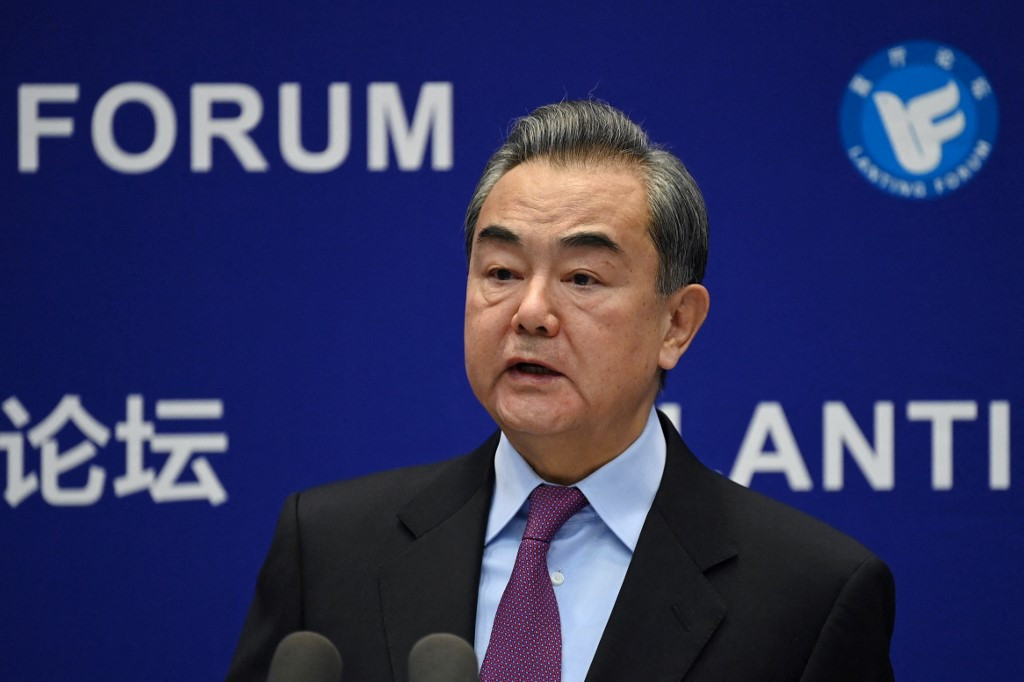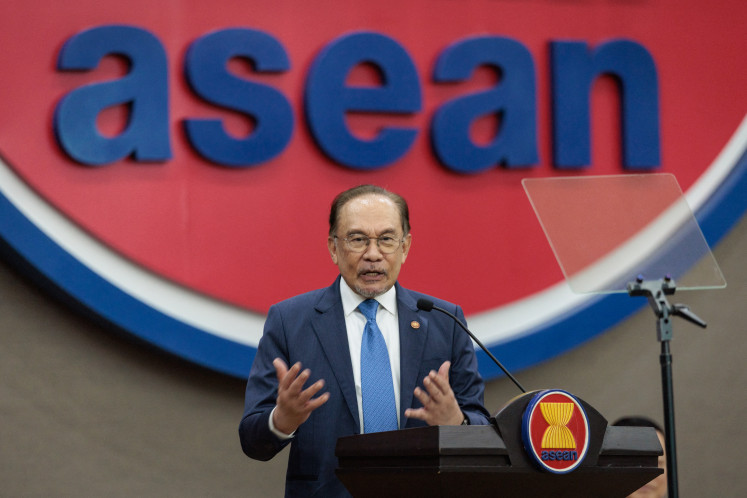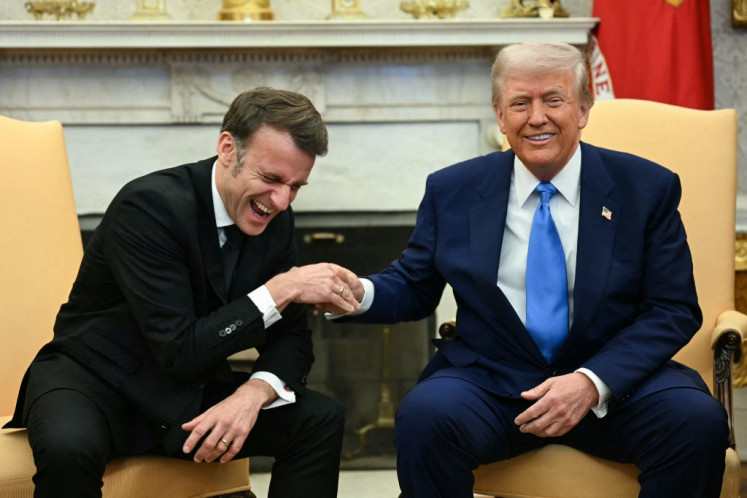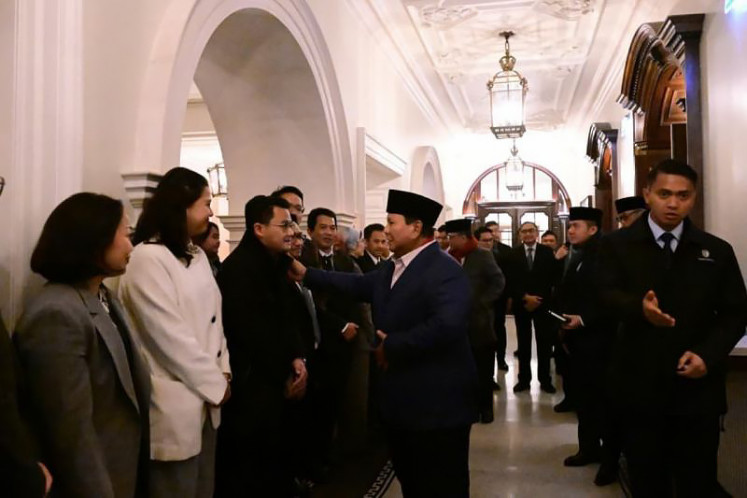Popular Reads
Top Results
Can't find what you're looking for?
View all search resultsPopular Reads
Top Results
Can't find what you're looking for?
View all search resultsChina warns ASEAN to avoid being used as 'chess pieces' by big powers
Speaking at the Association of Southeast Asian Nations (ASEAN) secretariat in Jakarta, Wang said that many countries in the region were under pressure to take sides in a region at risk of being "reshaped by political factors".
Change text size
Gift Premium Articles
to Anyone
C
hina's foreign minister Wang Yi warned on Monday that countries in Southeast Asia must avoid being used as "chess pieces" by major powers during a policy speech in Jakarta.
Speaking at the Association of Southeast Asian Nations (ASEAN) secretariat in Jakarta, Wang said that many countries in the region were under pressure to take sides in a region at risk of being "reshaped by political factors".
"We should insulate this region from geopolitical calculations… from being used as chess pieces from major power rivalry and from coercion," he said, quoted by Reuters, adding: "The future of our region should be in our own hands."
Southeast Asia has long been an area of geopolitical friction between major powers given its strategic importance, with some countries in the region wary of choosing sides in the current US-China rivalry.
Wang's speech comes just days after he attended a G20 foreign ministers' meeting in Bali and amid intense Chinese diplomacy that has seen him make string of stops across the region in recent weeks.
On the sidelines of the G20, Wang held a five-hour meeting with US Secretary of State Antony Blinken with both describing their first in-person talks since October as "candid".
Wang said on Monday he had told Blinken both sides should discuss the establishment of rules for positive interactions and to jointly uphold regionalism in the Asia-Pacific.
"The core elements are to support ASEAN centrality, uphold the existing regional corporation framework, respect each other's legitimate rights and interests in the Asia-Pacific instead of aiming to antagonize or contain the other side," Wang said.
Responding to a question about Taiwan after his speech, Wang said Washington "by distorting and hollowing out the One China policy, is trying to play the Taiwan card to disrupt and contain China’s development."
Tensions between Beijing and Taipei have escalated in recent months as China's military conducted repeated air missions over the Taiwan Strait, the waterway separating the island from China.
China considers Taiwan its "sacred" territory and has never renounced the use of force to ensure eventual unification.
Washington says it remains committed to its One China policy and does not encourage independence for Taiwan, but the United States is required to provide Taiwan with the means to defend itself under its US Taiwan Relations Act.
"The two sides across the (Taiwan) Strait will enjoy peaceful development. But when the one-China principle is arbitrarily challenged or even sabotaged, there will be dark clouds or even ferocious storms across the strait," Wang said.
Over the weekend, Blinken called on Southeast Asian nations to hold Myanmar's junta to account and said China shared an interest in restoring democracy.
"We will continue to look for ways that we can, and other countries can, effectively put pressure on them to move back to the democratic path," Blinken told reporters in Bangkok after meeting democracy activists from Myanmar.
"I think all the ASEAN countries need to hold the regime accountable," Blinken said, quoted by AFP.
The Association of Southeast Asian Nations (ASEAN) in April last year reached a "five-point consensus" with Myanmar's junta that had seized power two months earlier that included calls for dialogue with the opposition.
Blinken declined to criticise a recent visit to Myanmar by Chinese Foreign Minister Wang Yi, whom the top US diplomat saw Saturday in Bali, but called on Beijing to support the international calls for democracy.
"I think it's also incumbent upon China and in China's interest to see Burma move back to the path that it was on that it was so violently disrupted from by the coup," Blinken said, using Myanmar's former name.










